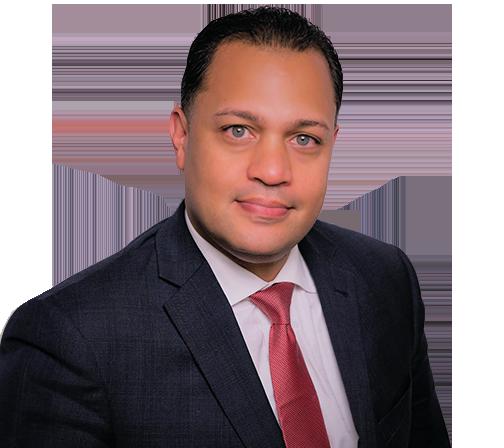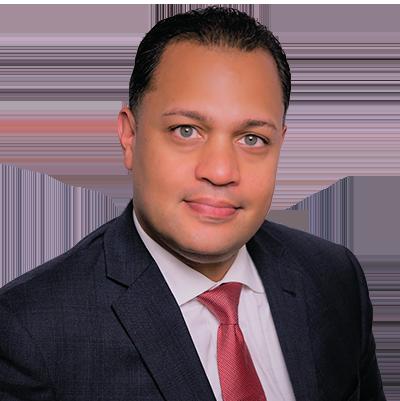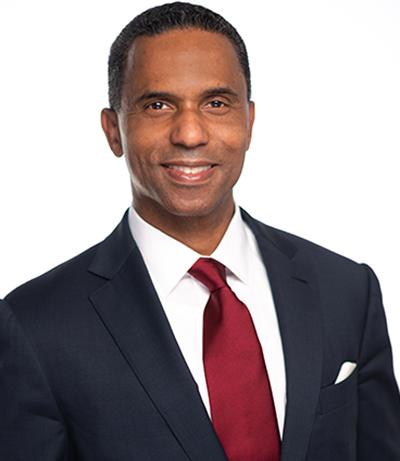

The Path Ahead for Emerging Managers in
Private Equity and Venture Capital
CITRIN COOPERMAN’S
EMERGING MANAGERS
SURVEY REPORT

Introduction
The path of an emerging manager is rarely an easy one, even in the best of times.
In good times, fundraising is a challenge. Allocations through emerging manager programs, though growing, result in capital going to relatively few fund managers. Some allocators favor large, more established brands or “reup” with emerging managers currently in their portfolios.
Moreover, the costs of running a fund have increased with compliance, IT, cybersecurity, legal, and fund administration demands and expenses becoming more onerous.
Those are the obstacles when times are good.
But good times gave way in the second half of 2022. Interest rate hikes, stubborn inflation, and macroeconomic uncertainty led to depressed deal volume, exits, and fundraising for private equity and venture capital funds.
The difficult path of an emerging manager became even harder.
Against this backdrop, we launched Citrin Cooperman’s inaugural Private Equity and Venture Capital Emerging Managers Survey, with the goal of shedding a light on the important capital raising and operational issues facing emerging managers in such challenging times.
Since then, 97 professionals in the emerging manager space responded with their insights. They shared their strategies and recommendations for capital-raising, insights on fees and terms, thoughts on environmental, social, and governance (ESG) issues and cybersecurity, and their overall industry outlook.
We also interviewed industry leaders who shared their thoughts on outlook for the sectors.
As our respondents and contributors shared, many expect the path ahead will remain difficult for emerging managers through at least year-end. But, like them, we remain hopeful that there are better times ahead for the asset classes.
We are indebted to our survey respondents and our esteemed group of external contributors for sharing their insights and for making our inaugural report possible.
We hope that you enjoy this report, and we look forward to discussing our findings with you.
Sincerely,


 Alexander Reyes Partner and Financial Services Industry Practice Leader Citrin Cooperman
Alexander Reyes Partner and Financial Services Industry Practice Leader Citrin Cooperman
The Research
This is Citrin Cooperman’s first Emerging Managers in Private Equity and Venture Capital Survey Report, which incorporates results from an online survey and interviews with leading emerging managers and capital providers.
Ninety-seven professionals in the emerging manager space shared their views on industry outlook and operational issues such as capital raising, fees and terms, ESG concerns, and cybersecurity. The survey was conducted from May through October 2023, and interviews with
leading emerging managers and capital providers were conducted in December 2023 and January 2024.
Eighty-four respondents identified themselves as alternative investment emerging managers. Of these, 60 respondents focus on private equity and venture capital investments. For our inaugural report, our analysis will be focused on private equity and venture capital fund and fund of fund emerging manager respondents unless otherwise noted.
AT WHAT TYPE OF ALTERNATIVE INVESTMENT FIRM DO YOU WORK?
Our private equity and venture capital fund and fund of fund respondents
Our private equity and venture capital fund and fund of fund respondents (hereafter referred to as “PE and VC fund respondents” or “PE and VC respondents”) all identified themselves as emerging managers. Sixty-three percent are at firms that have been in existence five years or fewer.
NEARLY
HALF of PE and VC fund respondents have five or fewer employees.
58% of our PE and VC fund respondents are at firms that manage less than $150 million in assets.
42% of PE and VC fund respondents are at firms that manage only one fund.
All major regions of the United States (U.S.) are represented by our PE and VC fund respondents.
TOTAL FIRM ASSETS UNDER MANAGEMENT
NUMBER OF FUNDS MANAGED BY FIRM
1 2 3 4
YOUR ANNUAL BUDGET FOR THE OPERATIONS OF YOUR FLAGSHIP FUND
LOCATION OF FIRM HEADQUARTERS
EMERGING MANAGER CATEGORIES SATISFIED BY RESPONDENT FIRMS
The amount of total assets managed by our firm
The number of funds we’ve raised
The amount of assets under management in our fund
The length of our track record
We are predominantly owned/managed by diverse professionals (minorities, women, veterans, LBGTQ, disabled professionals, etc.)
investment in underserved communities or markets
*Multiple responses allowed
NUMBER
OF PRIOR FUNDS MANAGED BY FIRM PRINCIPALS

Capital Raising

Sources of capital
The top three capital sources for our PE and VC fund respondents are family offices (cited by 70%), wealthy individuals (cited by 64% of PE and VC respondents) and fund of funds (cited by 43%). Public pension funds, money managers/advisors, and endowments/foundations trailed behind.
These findings are not surprising given that family offices and wealthy individuals are typically the most popular capital sources for emerging managers. “As firms mature and develop their track records, their funding sources tend to shift,” noted Citrin Cooperman’s Financial Services Industry Practice Leader and Partner, Alexander Reyes.
“By the time firms are on their third, fourth, or fifth fund, they are more likely to obtain capital from more institutional sources such as pension funds.”
Vice President of Finance and Operations at Illumen Capital, Katie Twomey, agrees. “As we’ve become more tenured as a firm, we have started
seeking out different funding sources,” she explained. Illumen Capital is an impact-focused fund of funds with a strategy that invests in emerging managers who have been historically overlooked in the asset management space.
In its nascency, Illumen Capital was mostly funded by high net worth individuals and foundations with an interest in impact investing. “Now, as the firm has grown, we have targeted more institutional investors such as insurance companies and university endowments,” said Ms. Twomey.
Moreover, because of the pandemic, many managers put fundraising on hold and delayed fund launches. These managers, in addition to more established managers, have gone back to market since, and many are chasing the same capital, which makes for a very challenging fundraising environment.

“As a general matter, the fundraising environment for emerging managers has been very challenging since the beginning of the COVID pandemic, even in terms of sources such as family offices that have historically been open to newer managers,” noted Mr. Reyes.
TOP SOURCES OF CAPITAL
*Multiple responses allowed

Emerging manager programs and mandates
Thirty-five percent of our PE and VC fund respondents have applied for and obtained emerging manager allocations. Nearly the same percentage (33%) have applied for but have not obtained such allocations. Twenty-eight percent of PE and VC fund respondents have not applied for any emerging manager programs or mandates.
“It’s understandable that only a third of our respondents have been successful in obtaining emerging manager allocations. Many newer managers may not satisfy the multitude of emerging manager program prerequisites – such as AUM level, track record, or infrastructure.
In addition, the due diligence process for many emerging manager programs is especially lengthy. Many newer managers simply don’t have the time or resources to devote to such a long process, especially when the chance of obtaining such an allocation remains statistically small.”
—CHRISTOPHER BROWN, PARTNER, PRIVATE EQUITY PRACTICE, CITRIN COOPERMAN“It really is a numbers game. Even large commitments to emerging managers yield only a small number of actual allocations. If a pension fund or other investor has $500 million dedicated to private equity and venture capital emerging managers, they can still only invest in five to 10 managers given that investments are typically $50 to $100 million. That’s not many allocations.”
—ANYORI (AJ) HERNANDEZ, PRESIDENT AND CHIEF EXECUTIVE OFFICER OF NEW AMERICAN ALLIANCE AND FORMER DIRECTOR OF EMERGING MANAGERS FOR NEW YORK STATE COMMON RETIREMENT FUNDFund respondents’ strategies for success
Faced with such a challenging fundraising environment, we asked our PE and VC fund respondents what factors they believed were the most important for their capital raising success.
According to 76% of those respondents, niche investment strategy topped the list. Also important, though less so, were pitch book/ marketing materials, firm infrastructure, a strong operating partner network, operations/ compliance, and ESG.
Many respondents also emphasized the importance of their track record, team, and sourcing network.

Ninety percent of PE and VC fund respondents plan to increase investment capital by 25% or more by the end of 2024.
Some respondents underscored the importance of infrastructure to potential allocators. As one respondent noted, “Our team, platform, and infrastructure-building give LPs [limited partners] confidence we have operationalized a multi-fund platform that will continue to perform consistently.”
In terms of concrete steps that respondents take when pitching to potential LPs, the vast majority –over two-thirds – research allocators’ current portfolios to see whether their fund fills an unmet need. Over half also proactively identify potential risks to their investment strategy and share those with potential investors.
Another respondent explained, “We research the LP, their preferences, their biases, and their investment history. We look for LPs who would consider our strategy to be accretive to their portfolio construction.”
HOW MANY POTENTIAL LPS DID YOU MEET WITH PRIOR TO CLOSING YOUR MOST RECENT FUND?
We research the allocator’s current portfolio to see whether our fund fills an unmet need
We proactively identify potential risks to our investment strategy and share those with the potential investor
We hire a third party for capital introduction and potential investor relationship development
We hire a third party consultant to create our marketing materials/pitch deck
WHEN PITCHING YOUR FUND TO POTENTIAL LPS, DO YOU DO ANY OF THE FOLLOWING?
*Multiple responses allowed
Allocators’ recommendations for capital raising success

“We have a vested interest in encouraging successful emerging managers regardless of whether we invest or not.”
—KOLA OLOFINBOBA, MANAGING PARTNER, FAIRVIEW CAPITAL
OUR ALLOCATORS SHARED WHAT THEY LOOK FOR WHEN MAKING INVESTMENTS.
Fairview Capital focuses first on the general partner (GP) team. “It is the most difficult thing to assess and yet it’s the most important to us,” noted Dr. Kola Olofinboba, managing partner. “Smart is a commodity. We want to understand why the team is partnering together, how they complement one another, and why they will stay and work together when times are tough,” he explained.
Ms. Twomey agreed, noting that Illumen Capital looks at similar factors when investing in emerging managers for its fund of funds. “Our GPs need to have the requisite industry and operational experience, as well as optimal team composition.”
In addition, “GPs must convince us that because of their expertise, networks and experience, they will have superior differentiated deal flow in the space,” Dr. Olofinboba added.
A strong track record is considered necessary but not sufficient to obtain investments.
“We also need to understand all aspects of a fund’s investment process: how the GPs screen potential investments, how they execute, how they add value and their plans for exit,” Dr. Olofinboba explained.
Increasingly, operational infrastructure is becoming even more important to allocators and the requirements for emerging managers have become more burdensome.
“In many cases, we’ve seen allocators require emerging managers to have a level of infrastructure that is beyond what they need to operate the fund,” Mr. Hernandez noted. “The hurdle is now so much higher, which makes the due diligence process much slower.”
Despite this trend, some allocators are willing to be flexible with emerging managers.
“For Illumen, there is no ‘one size fits all’ answer from an operational perspective,” said Ms. Twomey. “We try to meet our potential GPs where they are. If we do identify a gap, we are looking for the GP’s willingness to fill the gap or implement our recommendations,” she noted.
“Illumen also looks deeply at the service providers a fund manager has engaged,” Ms. Twomey added. “Most of their operations will be outsourced, and we want to make sure they have chosen reputable providers in terms of compliance, IT, legal, and fund administration.”
“We also want to make sure they’ve had a clean audit,” Ms. Twomey said.
Even if an allocator declines to invest in a fund, our contributors underscored the importance of continuing to develop the relationship if it seems like it could be a good fit.
As one respondent elaborated, “A ‘no’ today [may not be] a ‘no’ tomorrow.”
Dr. Olofinboba agreed, “We admit we don’t get to invest in every great manager – sometimes it’s simply not the right time. If you believe the investment is a good fit, you should continue to develop the relationship, even after a ‘no.’ Do what you said you were going to do and keep the allocator abreast of your progress. When you are back in the market, ask for another meeting.”


Fees and Terms
For roughly three-quarters of our PE and VC respondents, typical management fees are two percent or more and performance fees are 20% or more.
For their most recent funds, 53% of respondents used a clawback arrangement, 45% used a hurdle rate, and 13% used a high watermark.
WHAT ARE YOUR TYPICAL MANAGEMENT FEES?
WHAT ARE YOUR TYPICAL PERFORMANCE FEES?
YOUR MOST RECENT FUND INCLUDE THE FOLLOWING?
*Multiple responses allowed
STRUCTURE/TERM/ FEE ACCOMMODATIONS GIVEN TO LPS
LP advisory committee (LPAC) participation
Contractual co-investment rights
Discounted management fees
Other accommodations like key person clauses, etc.
Discounted performance fees
Fifty-five percent of PE and VC fund respondents have an anchor investor in their flagship fund. Of those respondents with an anchor investor, 31% give more favorable fees and/or terms to their anchor investor than to other LPs.
The most common accommodations given to LPs are LP advisory committee (LPAC) participation (given by 74% of PE and VC fund respondents) and contractual co-investment rights (given by 40% of respondents). Discounted management and performance fees, preferred returns, and stake in GP or a management company are given less often.
“In a difficult fundraising environment such as the current one, it’s not surprising for funds, especially younger ones, to make such accommodations,” noted Mr. Brown.
Preferred returns
Stake in GP or management company
Revenue-sharing provisions
Opt-out rights on certain investments
One respondent explained the same, “This is our first committed fund and we are in a difficult fundraising environment – we have to be prepared to be commercial while ensuring our long-term viability.”
“New managers frequently give these accommodations because they need capital to build their track record, especially in this difficult fundraising environment,” observed Mr. Reyes. “Once they have a track record and are on their second or later fund, they are more likely to be in the driver’s seat when it comes to negotiations with LPs. Fund managers’ tradeoffs early on may enable them to improve their negotiating power later.”
In terms of specific accommodations, our contributors underscored the balancing act that needs to be made.
Fifty-nine percent of all survey respondents believe LPs will increasingly pressure emerging managers to discount their fees and/or offer accommodations on investment terms or structure through the end of 2024.

“We have seen all of these accommodations. Sometimes we have asked for them,” acknowledged Dr. Olofinboba. But he cautions managers to be thoughtful about what they are giving up. “Anything you are doing that’s different from the standard, make sure there’s a reason,” he advised.
Accommodations may vary by type of investor. For example, family offices and fund of funds are more likely to seek the right to co-invest.
“Contractual co-investment rights are popular to hope for, but we generally do not see them contractually defined,” observed Ms. Twomey.
Faced with challenging fundraising environment, our contributors and respondents believe that new managers are more likely to give up economics than they were in the past.
“Twenty years ago, only about 10% of managers gave up economics for a good deal,” noted Mr. Hernandez. “But now it feels like 70 to 80% of newer managers are willing to give up economics to secure a seed deal because it allows them to get to the fundraising finish line faster.”
Mr. Brown cautioned new managers about accommodations, “I understand the desire to give anchor or other strategic investors accommodations, but it is very important to be clear on the business rationale, especially before you give away meaningful returns, which you need to remain viable and ensure your longevity.”
Some respondents indicated that they refuse to give accommodations to investors. As one explained, “We have tried to stay consistent with industry standard and not create precedents where emerging and diverse managers have to take below-market terms.”
Seed deals

Mr. Hernandez outlined the evolution of and alternatives for seed deals.
“Pension plans used to look for GP stakes to help control risk and receive some enterprise value if the business sold,” he noted. “However, many of us realized those stakes effectively made us part owners and exposed us to unnecessary liabilities so many migrated to taking a share of top line revenue, which also works from a GP perspective because then you aren’t giving up any operational ownership.”
He outlined alternative structures if a fund manager is considering a seed deal:
1. A percentage of the organization: An investor may seek 10% of the organization into perpetuity. Alternatively, some seek 20% of the organization but the percentage sunsets, scaling down after fund two or three. “That’s a great structure,” Mr. Hernandez noted.
2. Full fees at outset with discounts later: An investor may give a certain amount of dollars with no discounts for fund one, because they understand the new manager needs all the capital from an asset management and carry perspective. In addition, their commitment encourages other investors. “For subsequent funds, the pension plan may start to take a percentage off distributable carry and some percent of top line capital.”
3. Percentage of top line until certain benchmarks are reached: An investor may take 20% of top line revenue until the manager reaches fund three or $2 billion AUM.
“As a general matter, not every alternative will work for every manager,” Mr. Hernandez explained. In addition, as with all investor accommodations, he cautioned both investors and managers, “You don’t want to negatively impact the managers’ operations or their fundraise. Other allocators may feel like a manager’s seed LP is so rich that it inadvertently causes issues within the infrastructure.”
Environmental, Social, and Governance (ESG) Investing
Fifty percent of PE and VC respondents said that ESG is becoming increasingly important to their potential investors.
“However, many institutional investors are not making investment decisions based on whether ESG policies are part of the investment thesis,” Mr. Hernandez explained. “But they do expect their GPs to consider it as a risk factor when executing their strategy. Firms can gain a competitive edge when they have real ESG policies in place to assess and mitigate the related risks.”
Ms. Twomey cautioned against firms using “cookie-cutter” ESG policies. “The SEC is cracking down on funds who use an appearance of an ESG program as a marketing tool. If I see a fund using an ESG policy, they need to be doing every single thing they claim to be doing in that policy.”
Our respondents’ commitment to ESG has not varied based upon recent economic or geopolitical events, according to 77% of respondents.
When making investments, 50% of PE and VC fund respondents said that a potential portfolio company’s ESG policies are important when deciding to invest (20% described them as unimportant).
“We do not require our portfolio fund manager to have an ESG policy,” noted Ms. Twomey. “We are more concerned about impact.”
Thirty-five percent of PE and VC fund respondents do not believe ESG performance measures should be included in pay arrangements for portfolio company executives.
“I rarely see executive compensation tied to ESG, though we are hearing about it more,” acknowledged Ms. Twomey. “It is important to note that because there is no universal standard of measurement, funds can freely choose which metrics are tied to compensation, and consequently, the pairing of the two does not necessarily lead to more positive outcomes.”
HOW DO YOU MAKE YOURSELF AWARE OF DEVELOPMENTS IN ESG AND SUSTAINABLE INVESTING?
A. Company in-house staff/seminars/training B. Outside resources such as consultants, seminars, trainings, etc.
“From Illumen’s perspective, we would be hesitant to push our portfolio companies or emerging fund managers on this. Our fund managers share the belief that investing with an impact lens can lead to greater returns. With this conviction, the financial and impact performance are already comingled,” she added.
IN YOUR OPINION, SHOULD ESG PERFORMANCE MEASURES BE INCLUDED IN PAY ARRANGEMENTS FOR YOUR PORTFOLIO COMPANIES’ EXECUTIVES?

Cybersecurity

Investors are increasingly focused on cybersecurity policies and practices when considering an allocation.
“A firm’s cybersecurity policies and practices are definitely considered in our due diligence process,” emphasized Dr. Olofinboba. “Typically, if a firm has good advisors and a good infrastructure, they have the right systems in place. If they don’t, that’s a reason for us to pass on the investment.”
Most PE and VC respondents (63%) have an external IT resource who handles cybersecurity issues for the firm.
ACTS AS YOUR FIRM’S CYBERSECURITY RESOURCE?
responses allowed

“External IT resources are quite expensive. A first-time fund manager may not have sufficient resources to invest in fully outsourced IT support,” noted Ms. Twomey. “In that situation, we look at the manager’s plan to develop their IT resources as they grow.”
“Firms who are on their second or third fund, or those who are registered investment advisors tend to have robust cyber programs, generally fully outsourced and managed by their IT provider,” added Ms. Twomey.
In terms of cybersecurity specifics, 54% of PE and VC respondents have a cybersecurity incident response plan, test their plan periodically, and have a cybersecurity insurance policy.
“Our more institutional investors are requiring cyber insurance,” Ms. Twomey noted. “For our own investments in fund managers, it is not currently a requirement, but, if they do not have it, we may recommend that they obtain it,” she added.
HAVE YOU PREPARED FOR A CYBER INCIDENT BY ESTABLISHING AN INCIDENT RESPONSE PLAN, TESTING THE PLAN ON A PERIODIC BASIS, AND ACQUIRING CYBER INSURANCE TO OFFSET THE COSTS RELATED TO AN INCIDENT?
“Gone are the days where cyber criminals would spend their time trying to hack through firewalls or intrusion detection systems,” noted Kevin Ricci, partner, Risk Advisory and Compliance Practice; Cybersecurity Practice, Citrin Cooperman. “Now, their primary attack vector is through social engineering, where they prey on us because we are the weakest link.”
However, only two-thirds of our PE and VC fund respondents provide their employees with cybersecurity awareness training, simulated spear phishing simulations and access to security policies.
“These are the most cost-effective ways to reduce the risk of the most common type of cyberattack and therefore should really be non-negotiables for funds,” Mr. Ricci advised.
Seven percent of PE and VC fund respondents have experienced a cybersecurity issue or incident over the last 12 months.
In terms of portfolio companies, only 24% of fund respondents conduct cybersecurity assessments in advance of making an investment.
“Going forward, I expect that percentage will increase and more firms will conduct cybersecurity assessments of potential portfolio companies,” Mr. Ricci forecasted.
“In addition, there are ways to meaningfully improve portfolio companies’ cybersecurity efforts during the onboarding process,” he added. “Funds can provide new portfolio companies with templatized and yet malleable policies and procedures around cybersecurity, disaster recovery, and business continuity plans that can be modified for individual companies quite easily.”
Industry Outlook
Private equity and venture capital firms are still reeling from the effects of inflation, interest rate hikes and macro uncertainty. Higher borrowing costs have depressed deal volume, exits, and fundraising. Exit activity remains at unprecedented lows relative to assets under management. And fewer distributions mean less capital for fundraising. In addition, the denominator effect is still at play, with many institutional investors over-allocated to private markets.
When we first started surveying alternative investment professionals in the latter half of 2023, many survey respondents reflected this challenging outlook, with 64% of all respondents (fund managers across strategies and other alternative investment professionals) concerned about a potential recession and/or market turbulence.
By year-end, this outlook began to improve. Inflation had cooled, and many alternative investment professionals and other investors hoped the Federal Reserve would cut rates early in 2024. The first few months of 2024 saw the U.S. stock market rally, and many in private equity and venture capital hoped for a “soft landing” which would boost exit prospects and LP sentiment. However, by April, stubborn inflation, geopolitical unrest, and the Federal Reserve’s announcement that rate cuts were not imminent led to the longest stock market losing streak in months. The optimism that we saw earlier this year is now more tempered.
“I’ve been hearing people using the phrase, ‘Survive until ‘25’ and I think there is some truth to that for emerging managers,” Ms. Twomey noted.

“Industry benchmarks have shown that the track record of prospective fund managers over the last couple of years is very different than track records of funds in 2019. Since then, we’ve had a very slow IPO and M&A market, and track records have been somewhat flat or down as well. Investors need to keep that in mind. It does not mean that a fund has poor performance; it may just be the nature of the market.”
—KATIETWOMEY, VICE PRESIDENT OF FINANCE AND OPERATIONS, ILLUMEN CAPITAL
Unfortunately, even if economic conditions improve, fundraising for emerging managers will likely remain challenging through year-end.
Sixty-three percent of all survey respondents believe emerging managers will have a harder time raising capital through the end of this year, and only 23% of all respondents believe funding to emerging managers will increase through year-end. Private equity and venture capital fund respondents are even less optimistic about allocations, with only 15% of them believing that funding to emerging managers will increase in the same timeframe.
Mr. Hernandez agreed, “I think fundraising outlook for likely all of 2024 will be difficult. It won’t be as difficult as 2023, which in my opinion was harder than even 2008.”
Ms. Twomey also expects that the challenging fundraising environment will continue. “In times of economic uncertainty, people tend to operate with a scarcity mindset and revert to behaviors that fall within their comfort zone. This is when we see people rely on their biases and habits, which may cause investors to pull back on diversity, impact investments, or emerging manager programs, and move toward investments that they are already familiar with. However, Illumen is not backing down in this environment and remains committed to our conviction in investing in diverse emerging managers,” she underscored.
Several fund respondents echoed similar concerns about allocators returning to established names. As one respondent noted, “Economic hardship in addition to high interest rates will drive LPs to consolidate their participation into known brands.”
However, in the longer term, some hold a more optimistic outlook.
“Even though fundraising may remain challenging for emerging managers with institutional investors who tend to allocate to larger and more established managers, we expect family offices and perhaps even sovereign wealth funds will increase their allocations to the space,” noted Mr. Reyes.
Mr. Hernandez is similarly optimistic. “Going forward, I think we’ll continue to see more allocators investing in our industry and more investing in emerging managers, including pension plans, family offices, wealth managers, endowments, foundations, sovereign wealth, and corporate and retail wealth management arms,” he added.
“If you are an allocator looking for alpha and hoping to diversify your manager base, you almost have to go into small and medium-sized firms, which will be good for emerging managers,” Mr. Hernandez said.
OUTLOOK: TALENT, FEES, AND TERMS THROUGH THE END OF 2024 –ALL SURVEY RESPONDENTS 51%
The Last Words
This year’s inaugural Emerging Managers in Private Equity and Venture Capital Survey Report shows that fund managers in private equity and venture capital face a challenging landscape. Liquidity concerns, slower deal-making and lagging exit activity linger. Many expect fundraising, especially for emerging managers, will remain difficult through at least the end of 2024.
However, there are reasons for optimism, especially over the longer term.
If interest rates are cut later this year, exit prospects will improve and there will be a loosening of LP purse strings. Emerging managers with a strong team and well-articulated niche strategy will be in a good position to take advantage of improved market conditions and a better fundraising environment.
In addition, over the longer term, we expect more allocators will invest in emerging managers, recognizing their potential to generate outsized returns.
The path forward remains challenging, but we are hopeful that there are better times ahead for emerging managers.

About Our Contributors
CITRIN COOPERMAN


Partner and Financial Services Industry Practice Leader (O) 212.697.1000 | areyes@citrincooperman.com
Alexander Reyes has over 20 years of experience in assurance and advisory and provides a broad range of assurance and advisory services for financial services, private equity, venture capital, real estate, and middle market clients. Alex has extensive experience with financial statement audits, internal audits, accounting and financial reporting advisory, business performance improvement, and regulatory compliance for both large and middle market companies.




Partner, Private Equity Practice (O) 212.697.1000 | cabrown@citrincooperman.com
Chris Brown has over 30 years of experience advising large institutional investors and experienced and emerging fund managers in the private equity, private credit, venture capital, and real estate sectors. He provides his clients with services including financial statement audits, accounting and financial reporting advisory, risk management, business performance improvement, and regulatory compliance.
Partner, Risk Advisory and Compliance Practice; Cybersecurity Practice (O) 401.421.4800 | kricci@citrincooperman.com
Kevin Ricci has over 25 years of extensive experience in technology services including consulting, security assessments, cybersecurity awareness training, social engineering simulations, IT auditing, fractional CISO, project management, database development, data analysis, and compliance services including PCI DSS, for which he is a Qualified Security Assessor (QSA).
Alexander Reyes Christopher Brown Kevin RicciALLOCATORS/FUNDS


Managing Partner, Fairview (O) 860.674.8066 | kolofinboba@fairviewcapital.com
Dr. Olofinboba is involved in a broad set of investment, business development, and governance activities at Fairview. Additionally, he serves on the advisory boards of several private equity partnerships in Fairview’s fund portfolios. Learn more at: https://www.fairviewcapital.com/

President and Chief Executive Officer, New America Alliance anyori@naaonline.org
Anyori Hernandez leads initiatives related to economic empowerment of minorityowned businesses, educates, and inspires the next generation of leaders, and drives the philanthropic culture. He is the former director of emerging managers for New York State Common Retirement Fund. Under the direction of State Comptroller Thomas P. DiNapoli and Anastasia Titarchuk, CIO and Deputy Comptroller, the emerging manager team manages in excess of $7 billion in commitments to over 125 emerging firms across all asset classes. Learn more at: https://www.naaonline.org/


Vice President of Finance and Operations, Illumen Capital katie@illumencapital.com
Katie Twomey is passionate about using innovative methods of financing to advance social and economic justice and to positively impact people, communities, sectors, and markets. She moves this work forward through her role at Illumen Capital as the vice president of finance and operations and as the chief compliance officer.
Prior to joining Illumen Capital, Katie led the finance, operations, and human resource functions at the not-for-profit organization, Mama Hope, which aims to create a new global approach to tackling injustice in which communities hold the power and resources they need to drive their own futures. She began her career at Apollo Global Management, providing compliance support to private equity, credit, and real estate businesses to ensure compliance with corporate policies and procedures, FINRA, SEC, state, federal and international regulations. Learn more at: https://www.illumencapital.com/
Kola Olofinboba Anyori Hernandez


| melissa@m3strategicalliances.com
Melissa advises firms on the creation of business development, thought leadership, and diversity opportunities that increase firms’ visibility, reach, and revenue. Melissa has over 20 years of experience working with financial services firms, and her thought leadership and consulting span various sectors including private equity, hedge funds, venture capital, and real estate. Learn more at: www.m3strategicalliances.com
FINANCIAL SERVICES INDUSTRY PRACTICE
Today’s business environment presents new challenges and demands at a more rapidly evolving pace than ever. Financial service firms need clear advice from their accountants and business consultants to navigate new regulatory requirements and meet their tax obligations. In this current climate, it is critical to work with a dedicated team of professionals who understand your unique needs and stay current on the latest industry developments to help your business grow and succeed. Read more about our Financial Services Industry Practice’s services here

ABOUT CITRIN COOPERMAN
Citrin Cooperman is one of the nation’s largest professional services firms. Since 1979, we’ve steadily built our business by helping middle market companies and high net worth individuals find practical, actionable solutions to help them meet their short-term needs and long-term objectives. Our clients span a diverse array of industry and business sectors and find sustainable growth through utilizing our menu of comprehensive personal and professional services. Citrin Cooperman & Company, LLP, a licensed independent CPA firm that provides attest services and Citrin Cooperman Advisors LLC, which provides business advisory and non-attest services, operate as an alternative practice structure in accordance with the AICPA’s Code of Professional Conduct and applicable law, regulations, and professional standards. For more information, please visit citrincooperman.com.
